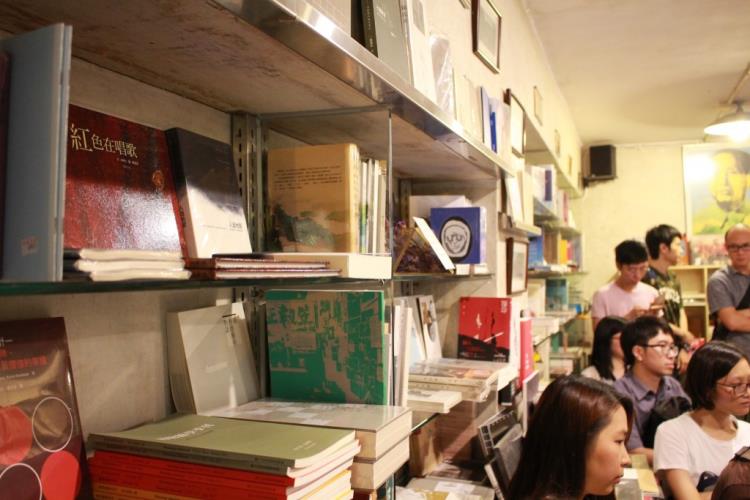Recipient of Macao Literary Prize and Macao Novel Prize, Joe Tang is a writer and cultural commentator, and has published novels, including The Floating City, Assassin, and The Lost Spirit. The latter two titles were translated into English and Portuguese. Joe’s portfolio also includes commentaries on art and plays. They include Words from Thoughts, Philosopher’s Stone, Journey to the West, Rock Lion, Magical Monkey and The Empress and the Legendary Heroes.

Book lovers in Macao had already anticipated that independent bookshop Pinto-livros eventually had to move out of bustling old town. But still, it’s sad news. This upstairs bookshop was founded in 2003 by several book lovers. What made this bookshop in the limelight was probably its prime location in Largo do Senado, Macao’s city centre. Today, it sounds unbelievable but back then Macao’s economy was in dire need of a jump start. The rental market was not the same as it is today. Rents have gone uncontrolled over the last ten years. Old shops or shops that are not tourist-oriented have been sold, closing down or moving out one by one, not only in downtown Largo do Senado, but also in other districts in Macao. The survival of Pinto-livros, therefore, had become a matter of concern for local readers and book lovers. In September, the bookshop announced that it had to move out from the location. Its fate was sealed later than expected, but it actually was not a surprise.
Business is business, and the ups and downs of the rental market are nothing special. Operating a bookshop is not really a profitable business and it usually becomes a “victim” in the property market. A bookshop (especially an independent bookshop), not matter how commercially run, is not merely a business operation. A number of countries and regions have a variety of policies, measures and even laws to foster and protect small-to-medium-sized bookshops because bookshops are considered as cultural assets in those societies. Books, especially those written by local authors or feature local subjects, can make the invisible and intangible “culture” become a tangible product or image. They become a strong and complicated network that links locals and foreigners alike, and communicate social history, tradition and culture to those audiences.
No matter it’s in traditional commerce or e-commerce, high capital costs and strong competition have become the norm. Brick-and-mortar bookshop has an “inborn” disadvantage: it’s not a very profitable business and cannot make money quickly. Having said that, a number of places in the world have some new models of operation that can be a good reference for us. The “industry + bookshop” combo model which combines commercial or residential property with a bookshop is just one of the examples. Bookshop is used as “cultural branding” for the commercial or residential property. A stylish and popular bookshop can become a hub for literati and hipsters alike and reinforce the cultural ambiance of any property. Eventually it makes the property more classy and create more values for it. More and more developers understand the value of culture and are willing to rent out spaces for bookshops with lower rates because they are able to see the derivative values from the cultural industry. Eslite Bookstore has expanded from Taiwan to Hong Kong and then to the Mainland. Owspace, Yanjiyou and Sisyphe Bookstore are bookshops located in CBDs in the Mainland. They not only become urban cultural spaces recognised by readers, but also enhance the cultural tastes and values of commercial properties.
In fact, “culture” is treated as core competitiveness by certain profit-oriented entrepreneurs as they gradually understand the huge potential offered by it. Culture has also become a key element in “strategic planning” by a number of cities and even at the national level. Now, take a look at Macao. Pinto-livros and other small-to-medium-sized bookshops find it so difficult to rent a space in the city, and we cannot solely blame that it’s because of the developer hegemony. Bookshop is like an X-ray machine. It screens for the cultural significance, its potential values and possibilities for the city, and reveals that how Macao is unenlightened and unready to garner such assets.